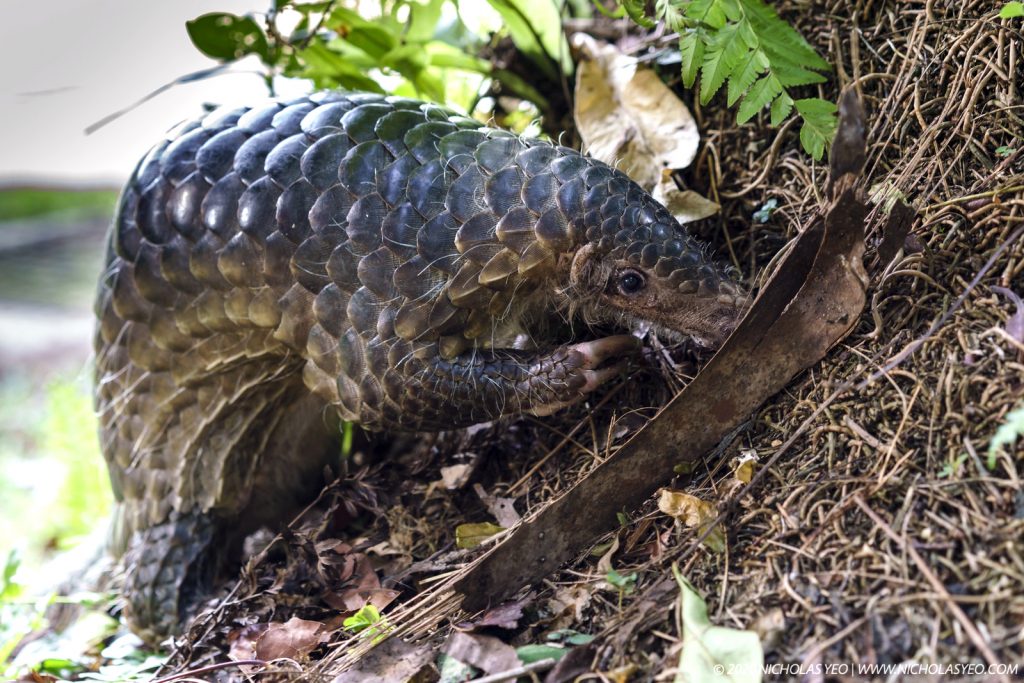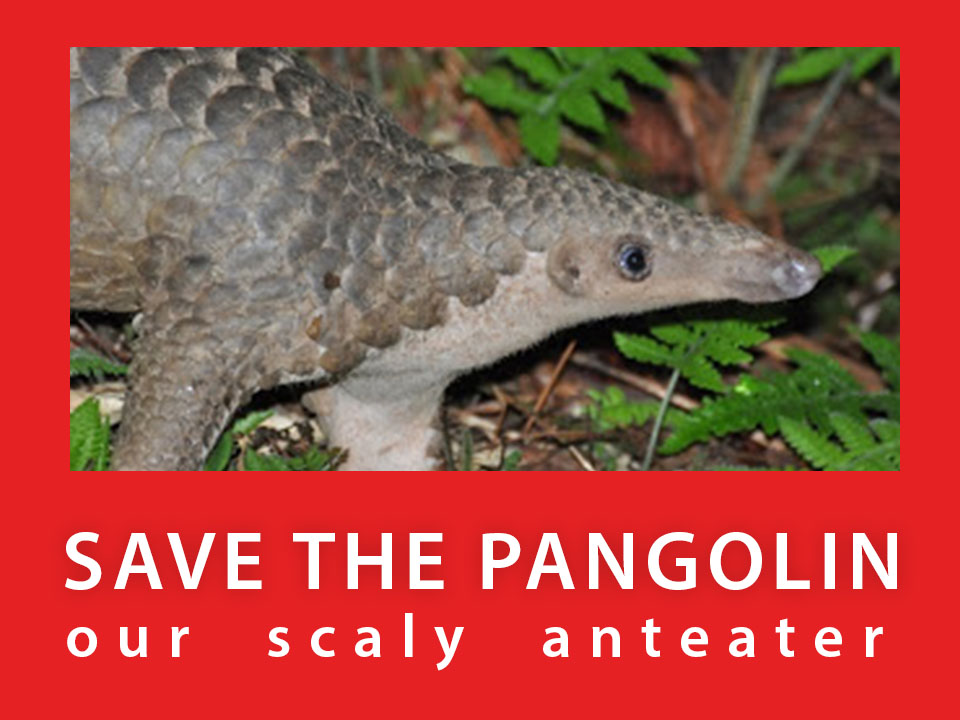A glimmer of hope for the pangolin as authorities in mainland China make a momentous decision

PHOTO: Nicholas Yeo
China has delisted pangolin scales from an official list of ingredients used in Traditional Chinese Medicine (TCM), raising the level of protection of the critically endangered mammal.
The news – first reported in the China Health Times in Mandarin – was later picked up by the state-owned China Global Television Network (CGTN), and Global Times, a hawkish tabloid known for nationalistic commentaries.

Reports indicated that the 2020 edition of Chinese Pharmacopoeia aims to curb use of pangolin scales, with authorities threatening imprisonment of up to 10 years for the hunting, killing and smuggling of the animals.
Apart from the use of its keratin scales for traditional folk treatments, pangolin meat is also consumed as a delicacy by a burgeoning Chinese middle class.
There are eight species of pangolins and all are under threat due to large-scale illegal hunting across Asia and Africa.
At least a million have been killed and sold over the past decade and half, according to CITES. The massive bloodbath was documented in a National Geographic report.
Conservationists have been fighting for decades to protect the scaly mammal, and momentum has also been building within China – activists there recently released a lone pangolin seized from poachers back into the wild, vowing that more would be done.
Chinese authorities have now moved to grant Class 1 Protections to three species, which include the Chinese pangolin (Manis
pentadactyla), Sunda pangolin (Manis javanica) and Indian pangolin (Manis crassicaudata).
“This is a good start … but this is not good enough. We will release a lot more soon.”
Dr Zhou Jinfeng, secretary-general of the China Biodiversity Conservation and Green Development Fund
Global wildlife regulator Convention on International Trade in Endangered Species (CITES) – of which China is a party – has banned international commercial trade of pangolin in a bid to protect the animal.
The International Union for Conservation of Nature (IUCN) has classified the native Chinese pangolin (Manis pentadactyla), as critically endangered.
Pangolins were a suspected host for COVID-19 (also known as SARS-CoV-2), wrote scientists Lam, et al. (2020) in a report published in the “Nature” journal.
Their research — fast-tracked into publication in March to aid epidemiological research and the search for a vaccine or cure — identified cousins of COVID-19 or “SARS-CoV-2-related coronaviruses in Malayan pangolins (Manis javanica) seized in anti-smuggling operations in southern China”.
The researchers conclude: “pangolins should be considered as possible hosts in the emergence of novel coronaviruses and should be removed from wet markets to prevent zoonotic transmission“.
STOP PRESS Learn more about the illegal wildlife trade and how it impacts the precious, delicate ecosystems in our world: Shepherd, C. (2020). Monitor and the Wildlife Trade. The Green Gazette. Retrieved from: http://www.thegreengazette.ca/monitor-and-the-wildlife-trade/ Alberts, E. C. (2020) Banned: No more pangolin scales in traditional medicine, China declares. Mongabay. Retrieved from: https://news.mongabay.com/2020/06/banned-no-more-pangolin-scales-in-traditional-medicine-china-declares/ Standaert, M. (2020). China raises protection for pangolins by removing scales from medicine list. The Guardian. Retrieved from: https://www.theguardian.com/environment/2020/jun/09/china-protect-pangolins-removing-scales-medicine-list-aoe

